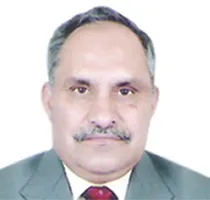In June 2015, Indian Special Forces, evidently, conducted a cross-border raid in Myanmar against hideouts of insurgent groups operating in the North East states, neutralising over 50 terrorists. This was in retaliation against the ambush on a military column which resulted in 18 soldiers being martyred earlier that month. The action reflected a more pro-active policy on the part of the Indian government. It had then been welcomed by Union Minister of State, Rajyavardhan Rathore, and several of his colleagues. They went so far as to suggest it was a message that neighbours who harbour terrorists would do well to heed.
The Pakistan military and political establishment had then belligerently responded; the country’s Interior Minister, Nisar Ali Khan, unequivocally warned against any such misadventure, stating that “Pakistan is not Myanmar and India should not think of repeating such an exercise within Pakistani territory.”
Given Pakistan’s unadulterated support for terror groups and their efforts at fanning separatist flames in the Kashmir Valley, it was only a matter of time before some serious enough provocation forced the Modi Government to explore more robust solutions. Pakistan engineered the Uri incident and also, possibly, timed it with Prime Minister Nawaz Sharif’s appearance at the United Nation General Assembly. However, it is unlikely that Pakistan wanted the incident to be seen as anything other than a showpiece of reactions by locals against gross human rights violations committed by Indian security forces.
Unfortunately, the unexpectedly large number of casualties had upset all calculations. Though Pakistan continued to stick with its narrative, the event forced the Modi Government to act so as not to lose all credibility. Despite Narendra Modi's earlier rhetoric against the UPA government’s lackadaisical response to Pakistan in face of terror attacks in the past, the prime minister must be complimented for resisting pressure and not indulging in a purely knee-jerk reaction, which is devoid of substance.
The targeted cross-border raids which were conducted on Wednesday night by elements from two of our Parachute (Special Forces) battalions, reportedly against seven terror launch pads within 2-3 km from the LoC in Pakistan Occupied territory in the Valley and the Rajouri-Poonch Sector was, therefore, not unexpected. Much has already been written about these raids, most in the realm of speculation, to bear repetition.
Despite Pakistan’s denials, it is no longer in doubt that these raids happened, and militants along with some Pakistan army personnel were killed. Contrary to popular perceptions, it suffices to say that the Indian army has had a robust special operations capability since independence that has been used on several occasions, even abroad.
One may recall their employment in Sierra Leone when our Parachute (Special Forces) elements led rescue operations to free our troops held hostage while serving on a UN Mission. Therefore, it can be clearly stated that despite the hoopla, this was a routine task for which they have been trained over the years. Having said that, such high-risk missions are always fraught with danger and success is never guaranteed.
What has been different in this case is the political will displayed by the Indian government, not just in the matter of permitting the military to conduct these high-value raids, but also the preparation that has gone into organising them and the media blitz that has followed. Its selection of targets was clearly restricted to so-called “non-state actors” and not the military and the operation took place in territory that India claims is illegally occupied by Pakistan.
By stating that this show of force was a preemptive defensive action against terrorists preparing to infiltrate, the government is clearly suggesting it was not keen to escalate the situation further. The coordination and assistance provided by the National Technical Research Organization (NTRO) and the Research and Analysis Wing(R&AW) in providing real-time intelligence on the chosen targets have been unprecedented. These factors have played a major role in the successful completion of the attack.
Most importantly, despite its stated objective of not wanting to escalate the situation further, the government has taken precautions by evacuating villages along the international border in Punjab, Rajasthan and Gujarat. This clearly indicates its willingness to hang tough and, if required, up the ante and launch a counter-strike in the event Pakistan decides to respond. The government may even be signaling that in the case of escalation, it would be willing to put in motion the military’s Cold Start Doctrine that envisages capture of territory in the Punjab and Sindh regions of Pakistan.
So where does all this leave Pakistan? For one thing, it suggests that Pakistan’s policy of nuclear blackmail and threats to deal with any Indian provocation by using tactical nuclear weapons appears to have run its course. As does it's untrammeled and open support for militants working in tandem with the army. With the use of terror as state policy over the past few decades, Pakistan finds itself isolated on this issue by large sections of the international community. Thus, any escalation on its part is unlikely to be viewed kindly and can only make matters more difficult for it.
Despite Pakistan's efforts to suggest that the strikes are a figment of the Indian imagination, the credibility of its own denials have been greatly damaged, given the different voices emanating from the military and political establishment. There is a distinct possibility that public opinion may force Nawaz Sharief’s hand, in which case he may find himself between a rock and a hard place. The next few weeks will reveal whether this subcontinent finds itself plunged into another futile war or focuses on the more pressing challenges of countering endemic poverty and hunger that haunt both the nations.
This article originally appeared in wionews.com
The views expressed above belong to the author(s). ORF research and analyses now available on Telegram! Click here to access our curated content — blogs, longforms and interviews.




 PREV
PREV


